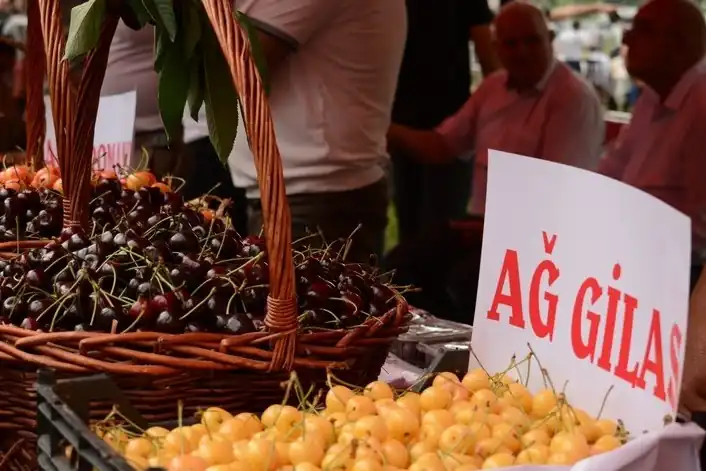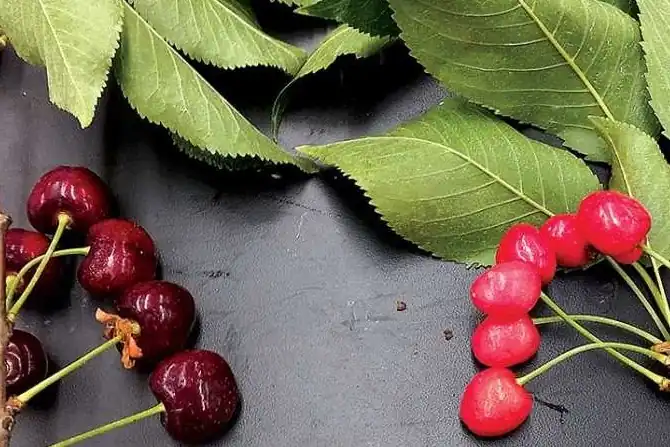Due to the rains and high humidity, this year the cherry harvest has been poor. Therefore, the prices of cherries are higher this year. If last year at this time you could buy a kilo of cherries for 7-12 somoni ($0.60-$1.04), this year they cost from 12 somoni ($1.04) in the regions to 30 somoni ($2.60) in the capital.
At the beginning of flowering, there was no end to the joy of the gardeners: everything promised a great harvest. But the May rains beat the berries, and also, due to the high humidity, the fruits began to rot and crumble. Therefore, this year's harvest will be very poor.
It should be noted that the export of cherries is a bit delayed for various reasons: high transportation costs, difficulty in quickly transporting fresh fruit to foreign markets, and so on. Therefore, cherries are mostly destined for the domestic market.
Cherries as a Way to Feed the Family
In addition to being cultivated by farmers, cherries are also grown by the population themselves in home plots, and for many people, they represent one of the sources of livelihood for the family budget. The main regions where sweet and tasty cherries are grown are Vakhsh and the Gissar Valley. In the Republic, there are few early and late varieties, most cultivated varieties are of medium ripening, such as "Valovaya" and "Negrityanka".
The most common varieties are generally considered: "Lolagi" with large fruit, "Black Napoleon", "Pink Napoleon", "Yellow Dragana", "Cardinal", and others. Currently, there are intensive varieties of cherries, which yield starting from the 2nd year of planting.
Depending on the soil, the planting scheme also varies. Usually, cherry plantations have a 5x5 scheme, which translates to exactly 400 trees per hectare. Cherries start bearing fruit from 4-5 years of age. "With good care and a good owner, along with favorable climatic conditions, 10-15 tons of fruit per hectare can be harvested per season," said farmer Abdullo Nuraliyev.
Cherries are susceptible to diseases such as bacterial canker (cherry cancer), gum disease, moniliasis, pear rust, powdery mildew, and many others. Gardeners claim there are no implementation problems. Wholesale buyers arrive, they themselves help to pick and pack the berries into boxes.
Furthermore, it is difficult to store cherries for a long period: in the country, there are very few warehouses with refrigerated cells. For this reason, gardeners hurry to harvest cherries as soon as possible, as they quickly become overripe.
Cherry orchards bring good income to their owners. For this reason, in recent times, farmers are trying to increase the size of cherry orchards.
Source: Asia-Plus
Image: Asia-Plus
Cherry Times - All rights reserved










